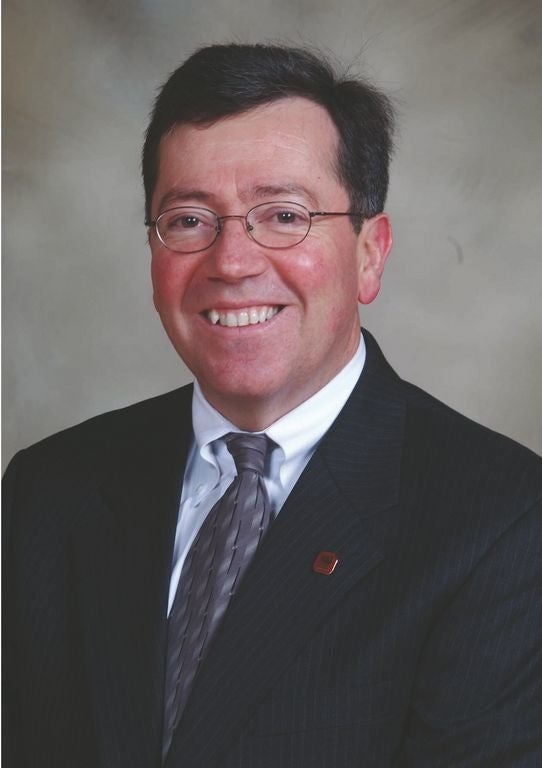Leaving his post at president of Kutztown University in Kutztown, Penn. for the same job at Framingham State University will bring F. Javier Cevallos into familiar territory.
“In a way, it’s like going back home,” said Cevallos, who was hired as a Spanish professor for the University of Massachusetts Amherst in 1984 and, through the years, advanced to vice chancellor for student affairs before leaving for Kutztown in 2002.
A common history
Cevallos, who is expected to be confirmed as FSU’s new president by the state Board of Higher Education on Jan. 21 and will assume the position July 1, was born in Ecuador, but joked that he’s practically a native, “with a deep southern accent.”
Cevallos has maintained many connections in Massachusetts. In addition to his roots here, he said FSU as an institution mirrors Kutztown. Both are public institutions originally established as teachers’ colleges.
Cevallos said he had been impressed with FSU when he visited the campus while he worked at UMass Amherst in the 1990s. He said he always had Framingham State in the back of his mind as a school he’d like to work for. One of 84 applicants, he made it to the short list of finalists, and the FSU board of trustees voted Jan. 7 to recommend him. He succeeds Timothy J. Flanagan, who left FSU last May.
“Throughout the interview process, Dr. Cevallos stood out as an exceptional candidate,” board chairman Richard C. Logan said in a statement. “The search committee enthusiastically endorses his selection as president.”
Cevallos up to enrollment challenges
In a statement, FSU pointed to Cevallos’ work in bolstering enrollment at Kutztown as evidence of his talent, with the student population growing from 8,500 to 10,000 during his tenure.
Meanwhile, colleges and universities across the U.S. are confronting an enrollment slowdown, and higher education officials, like Cevallos, must determine how to maximize the potential of a shrinking pool of potential students.
Back in Pennsylvania, Cevallos said some of the public schools had “significant challenges” in preparing students for college. He said higher education institutions must reach out to public schools to assist in ensuring they’re prepared.
Due to changes in demographics, the number of students graduating from high school in the U.S. is shrinking, but Cevallos said a better-prepared pool of applicants will help counteract declining numbers. He noted that the Kutztown faculty had partnerships with area public schools, which was crucial to improving college preparation.
Cevallos said Massachusetts is one of the few states already doing this well, and he looks forward to continuing the effort at FSU.
“You have to work a little harder, but that is something all of us have to do,” Cevallos said.

